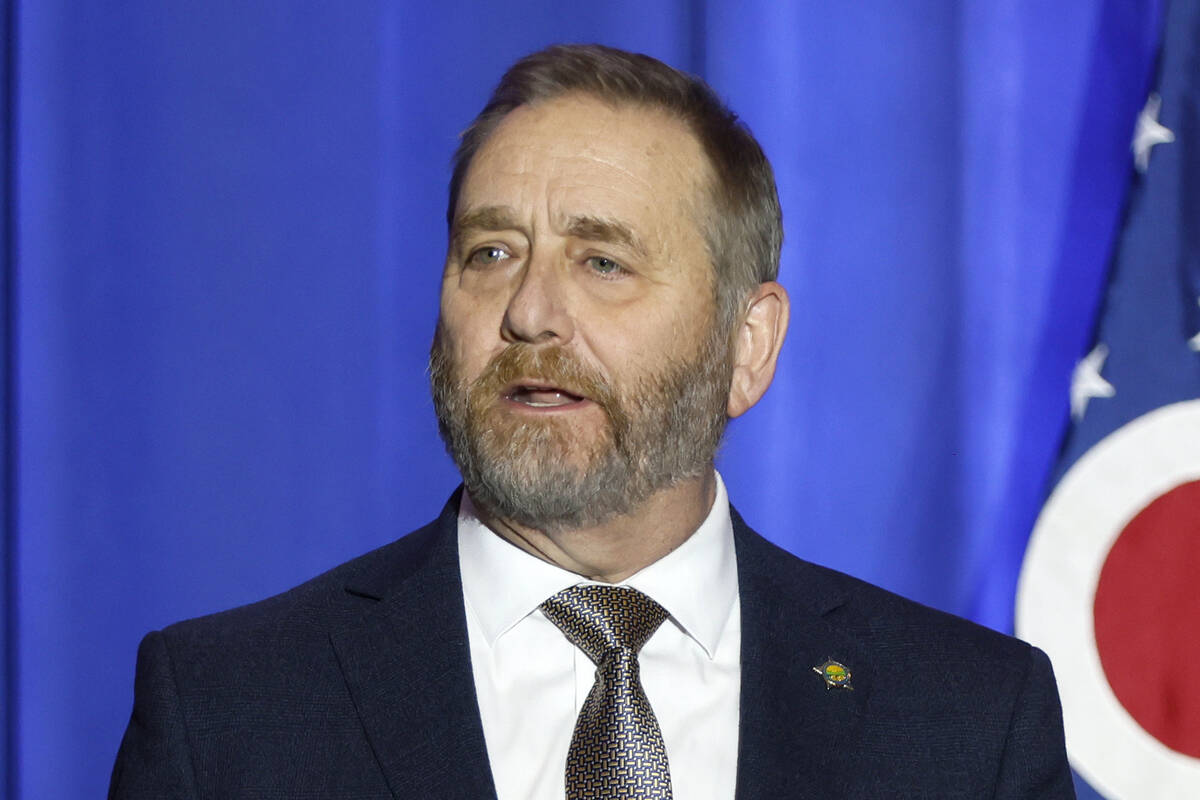Anti-KKK law in Ohio could lead to charges for student protesters in masks
COLUMBUS, Ohio — Ohio’s top lawyer has advised the state’s public universities that a law written to deter Ku Klux Klan demonstrations could be used to impose felony charges on students who wear face coverings while protesting the war in Gaza.
In a letter sent this week, after weeks of pro-Palestinian campus protests around the country, Republican Attorney General Dave Yost advised the presidents of Ohio’s 14 public, four-year universities — which his office represents — to forewarn students about the 1953 law.
“In our society, there are few more significant career-wreckers than a felony charge,” the letter said. “I write to you today to inform your student bodies of an Ohio law that, in the context of some behavior during the recent pro-Palestinian protests, could have that effect.”
The law is contained in a single sentence: “No person shall unite with two or more others to commit a misdemeanor while wearing white caps, masks, or other disguise.” Violating this “anti-disguise” law is punishable by a fourth-degree felony charge, up to $5,000 in fines and five years on community control, Yost wrote.
Protesters around the U.S. and the world have increasingly taken steps to remain anonymous by wearing a combination of head and face coverings, in a world where facial-recognition software can easily lead to negative repercussions. Not all do so to hide their identities, however. Some wear religious hijabs or medical masks used to prevent exposure to COVID-19, or as a political statement on the virus’ ongoing impacts.
Yost, a fourth-term state official who is considering a run for governor in 2026, wrote that students should protest “within the bounds of the law,” not commit crimes, not use the First Amendment as “a sword against fellow students,” and “own their advocacy and avoid wearing masks.”
Among Ohio’s 34 public universities are Kent State, whose name is synonymous with clashes between Vietnam War protesters and National Guard members that left four dead in 1970, and Ohio State — a site of several protests in recent weeks where dozens have been arrested, most for criminal trespass.
Ohio State spokesperson Ben Johnson said the university had received Yost’s letter and was reviewing it. In a March 6 letter, Yost had told President Ted Carter that Ohio law prevents the university from divesting its interests in Israeli assets, one of the calls of protesters.
Kent State and several other universities contacted by The Associated Press had no immediate comment. Nor did the Inter-University Council, which represents universities’ interests, or the American Civil Liberties Union.
Bethany McCorkle, a spokesperson for Yost’s office, said the letter regarding the “disguise law” was not a response to any specific request for legal advice by the universities.
“The letter was proactive guidance to universities that he is counsel for to make sure no one becomes an unintentional felon,” she said in a text message.






















